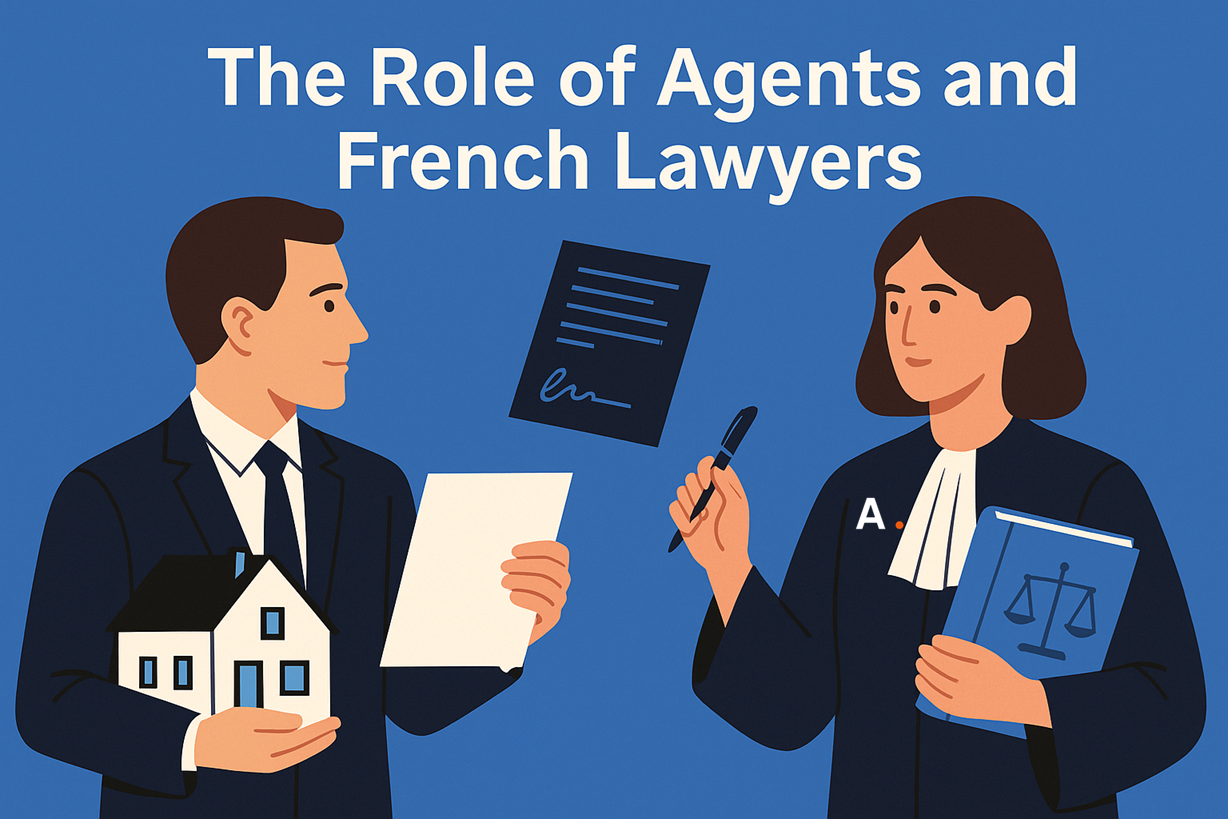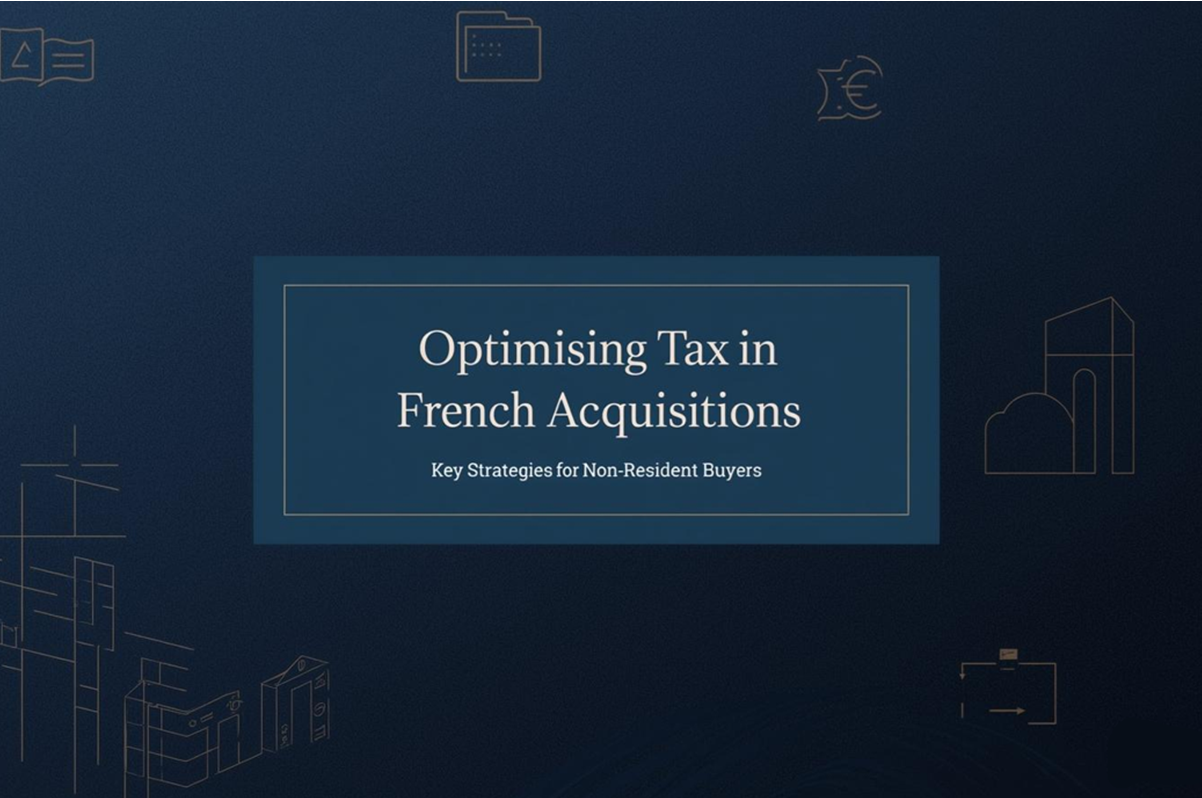The Role of an Agent and a French Lawyer in Business and Legal Transactions
In France, navigating business and legal transactions often requires the expertise of multiple professionals, each with distinct but complementary roles. Among these, agents and French lawyers stand out as key figures, playing crucial roles in ensuring the success and legality of various endeavors. Whether it involves real estate, corporate negotiations, or intellectual property rights, the collaboration between an agent and a French lawyer provides clients with a combination of strategic advice, practical support, and legal protection.


An agent in the French context is typically a professional intermediary who represents clients in specific transactions or negotiations. Their expertise spans various industries, including real estate, entertainment, business brokerage, and sports management. Agents act as facilitators, connecting clients to opportunities, negotiating favorable terms, and managing the practical aspects of a deal. Their primary role is to secure the best possible outcome for their clients by leveraging their industry knowledge and network.
A French lawyer, on the other hand, provides the legal framework necessary to validate, protect, and enforce agreements and transactions. Lawyers ensure that contracts comply with French law, address regulatory requirements, and safeguard clients’ rights. In complex transactions, such as international business deals or high-value real estate purchases, the lawyer’s role becomes indispensable in navigating the intricate legal landscape and resolving disputes that may arise.
The synergy between agents and French lawyers is particularly evident in real estate transactions, one of the most common areas where their collaboration is essential. A real estate agent identifies properties, arranges viewings, and negotiates prices, acting as the client’s advocate in finding the right property at the best terms. However, the transaction cannot be completed without the involvement of a French lawyer, who conducts due diligence on the property, ensures the legality of the title, and oversees the drafting and signing of the sale agreement. The lawyer also verifies compliance with French property laws and addresses tax implications, ensuring that the transaction is both secure and advantageous for the client.
In the entertainment and sports industries, agents often manage the careers of artists, actors, or athletes, negotiating contracts, securing sponsorships, and expanding their clients’ professional opportunities. While the agent focuses on securing lucrative deals and managing the client’s brand, a French lawyer ensures that contracts are legally binding and protect the client’s interests. This includes addressing intellectual property rights, royalty structures, and dispute resolution clauses. For high-profile individuals, lawyers also play a critical role in safeguarding their legal rights and managing potential liabilities arising from public engagements or endorsements.
Business transactions, such as mergers, acquisitions, or franchise agreements, are another area where the collaboration between an agent and a French lawyer proves invaluable. Agents in these contexts are often business brokers or intermediaries who connect buyers and sellers, negotiate preliminary terms, and manage the transactional process. They identify opportunities, provide market insights, and work to align the interests of both parties. The French lawyer, meanwhile, provides the legal expertise needed to draft and review contracts, address regulatory compliance, and ensure that the transaction aligns with French corporate and tax laws. Lawyers also perform due diligence, uncovering potential liabilities or risks that could affect the deal’s viability.
The relationship between agents and French lawyers becomes even more critical in cross-border transactions. For example, an international investor seeking to acquire property or establish a business in France may rely on an agent to navigate the local market, identify opportunities, and facilitate negotiations. However, the complexities of French law, including zoning regulations, tax treaties, and labor laws, require the involvement of a French lawyer. The lawyer ensures that the transaction complies with French legal standards and addresses any potential conflicts with the investor’s home country regulations.
The effectiveness of the collaboration between an agent and a French lawyer lies in their complementary roles. While agents focus on achieving the client’s strategic objectives and practical outcomes, lawyers provide the legal structure and safeguards necessary to validate and enforce agreements. This dual approach ensures that clients benefit from both proactive negotiation and reactive protection, minimizing risks and maximizing opportunities.
One area where the interaction between agents and French lawyers can be challenging is in managing overlapping responsibilities. For instance, an agent negotiating a contract may need to defer to the lawyer for legal review, while the lawyer may rely on the agent’s industry expertise to understand the nuances of the deal. Effective communication and clear role delineation are essential to avoid conflicts and ensure that the client receives the best possible service.
About the Author :
Business lawyers, bilingual, specialized in acquisition law; Benoit Lafourcade is co-founder of Delcade lawyers & solicitors and founder of FRELA; registered as agents in personal and professional real estate transactions. Member of AAMTI (main association of French lawyers and agents).
FRELA : French Real Estate Lawyer Agency, specializing in acquisition law to secure real estate and business transactions in France.
Paris, 15 rue Saussier-Leroy, Paris
Bordeaux, 24 Rue du manège, 33000 Bordeaux
Lille, 40 Theater Square, 59800 Lille

This article is provided for general information only and may not reflect the most recent legal or tax developments. It does not constitute legal advice. Please contact us for personalised guidance before making any decision.




